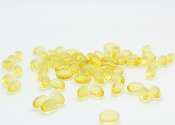Animal study suggests a paternal fish oil supplement may lower obesity risk in offspring
A study performed in mice has uncovered a potential new tool to combat the escalating issue of childhood obesity. The research suggests that a simple dietary change, in the form of a fish oil supplement taken by fathers, ...
Jun 29, 2024
0
0








